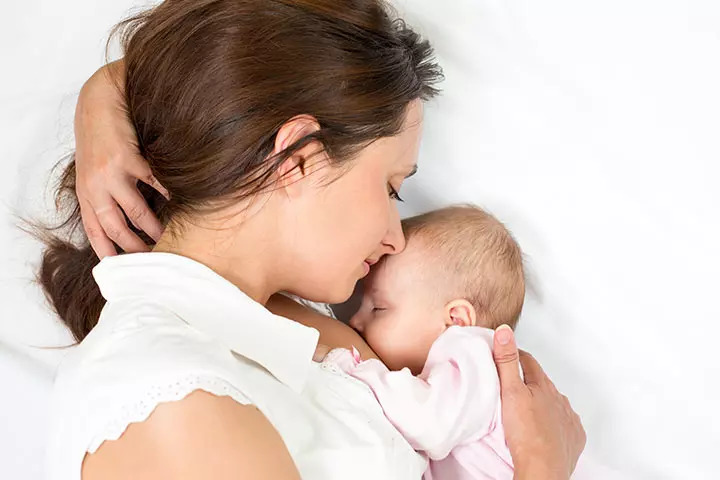May 26, 2020
Pregnancy is such a beautiful time in a woman’s life. But don’t get me wrong, not every day of pregnancy is glamorous. We’ve all of the luxurious hair, the glowing skin, the stretchmarks with the growing belly, but there are also things that happen to a woman’s body that aren’t really discussed. That’s why we are covering all of the surprising body changes a woman can experience during pregnancy. So if you’re currently expecting and are noticing some odd changes happening to your body you can feel relieved knowing that you are not alone.
You might be sweating . . . a lot.
Something that is common during pregnancy and postpartum is increased sweating. However, the first and third trimesters are when hyperhidrosis is the most common and severe. Many women begin feeling sweaty very early in their pregnancies and night sweats are fairly common. Some women have also reported having hot flashes while pregnant.
Which brings us to our next point . . .
Your blood volume doubles.
This is one of the reasons why you pee so much! It’s also the primary cause of anemia, the most common pregnancy complication. Did you know that a pregnant woman’s blood plasma volume increases by up to 40 percent compared to pre-pregnancy? It’s true! Your body is working so hard. And it continues to rise to 60 percent or more by the end of the third trimester. This is why you’ll likely have blood work drawn at around 28 weeks to check if you are anemic.
Your skin changes.
With all of this blood circulation through your body, it can cause your face to be brighter giving you that pregnancy glow! But if your skin produced a fair amount of oil before you were pregnant, the extra hormones could cause your face to be shiny. Unfortunately not everyone has dewy glowing skin during pregnancy. Some women experience pregnancy acne. With your oil glands in overdrive, it can cause women to have breakouts. This is why it’s important to continue cleansing your face every morning and night and use an oil-free moisturizer.
Another thing that women can experience is the “mask of pregnancy,” also known to as melasma and chloasma. Melasma causes brown to gray-brown patches to appear on your face. These spots most commonly appear on your cheeks, the upper lip, the chin, and the forehead and are a result of increased pigmentation. Around 50-70 percent of pregnant women show some signs of the “mask of pregnancy.” To avoid this, we recommend wearing a hat and good sunscreen during the day and avoiding too much sun exposure.
Read More: How and Why Your Body Changes During Pregnancy
You might get a yeast infection/s.
Yeast infections during pregnancy are more common than any other time in a woman’s life. Why is that? Because there is more sugar in the vaginal secretions during pregnancy on which the yeast can feed. This causes an imbalance which results in too much yeast. Yeast infections occur when the normal levels of acid and yeast in the vagina are out of balance, which allows the yeast to overgrow. The symptoms of yeast infections include:
- Itching and irritation in the vagina and vulva
- A burning sensation, especially during intercourse or while urinating
- Redness and swelling of the vulva
- Vaginal pain and soreness
- Vaginal rash
- Thick, white, odor-free vaginal discharge with a cottage cheese appearance
- Watery vaginal discharge
If you are experiencing these symptoms, contact your doctor or midwife so you can receive an accurate diagnosis and proper treatment.
You may have a linea nigra.
The linea nigra, also known as the pregnancy line, is another surprising body change during pregnancy. It’s a dark line that runs from the navel to the pubic bone down the center of a pregnant woman’s belly. It darkens during pregnancy acquiring the name linea nigra (literally translating to “black line”). The pregnancy line is never really black, however, it is brownish and darker in color. This usually occurs on skin tones that are darker in pigmentation.
It is unknown why the linea nigra develops, but it is believed to be a hormone-induced change. Some believe that the melanocyte-stimulating hormone could be the main contributing factor as well as the cause for the darkening around the nipples. Which leads us to our next surprising body change during pregnancy . . .
You may experience changes to your breasts.
Some of the first pregnancy symptoms women experience are fuller, tender, and hypersensitive breasts. There are a lot of changes going on with your breasts now that you are pregnant. Along with a growth in breast tissue, some of the changes that you may experience are:
- Darkening of the nipples and areolas (the skin around your nipples).
- Your areolas and nipples will grow larger. (Some women feel very “National Geographic” with all of these body changes.)
- Your nipples may protrude out more.
- Larger and darkened veins on your breasts that are more visible. This is due to increased blood supply.
- Your Montgomery glands (small glands on the surface of the areolas) may become raised bumps.
- Your breasts may start leaking a yellowish, thick substance called colostrum.
Your hormones are the cause of these changes, and you may experience some more than others. And in addition to all of this, your ribcage may spread the further along in your pregnancy you get which means you may have to go up a bra size.
You could have digestive issues.
Many women have said that they have never been gassier in their lives than when they were pregnant. The reason is the hormone progesterone relaxes your smooth muscles and causes slower digestion. This causes pregnant women to experience constipation, diarrhea, bloating, and indigestion. As the uterus grows, it can press on or even block parts of the digestive tract causing things to block up.
Your hair and nails grow faster and thicker.
This is a positive body change during pregnancy! Many pregnant women report growing faster and thicker hair and nails. Some attribute it to their prenatal vitamin but estrogen also increases the length of the growing phase of your hair follicles. But watch out! Women often experience their hair thinning around their hairline at around 4-6 months after the baby is born. This is due to the drop in estrogen, resulting in the dreaded postpartum hair loss. So enjoy the luscious pregnancy hair while it lasts!
Your ligaments and joints relax.
During pregnancy, the hormone relaxin allows for your joints and ligaments to relax, making more room in your pelvis for baby to come through for delivery. However, relaxin can also cause women to experience back pain and sciatica. The reason is the weight of your baby pulls your lower spine forward which adds strain to your lower back muscles. We recommend lightly stretching and exercising to help prevent experiencing these issues.
Your feet can grow.
You know what’s really wild? Some women have reported their feet going up a half or full shoe size during pregnancy. This could be temporary due to swelling, but for some it may be a permanent change. Some doctors think that permanent changes may be due to increased growth hormones.
Who knew so much could happen to our bodies during pregnancy BESIDES growing a baby?! Which change was the most surprising to you?








